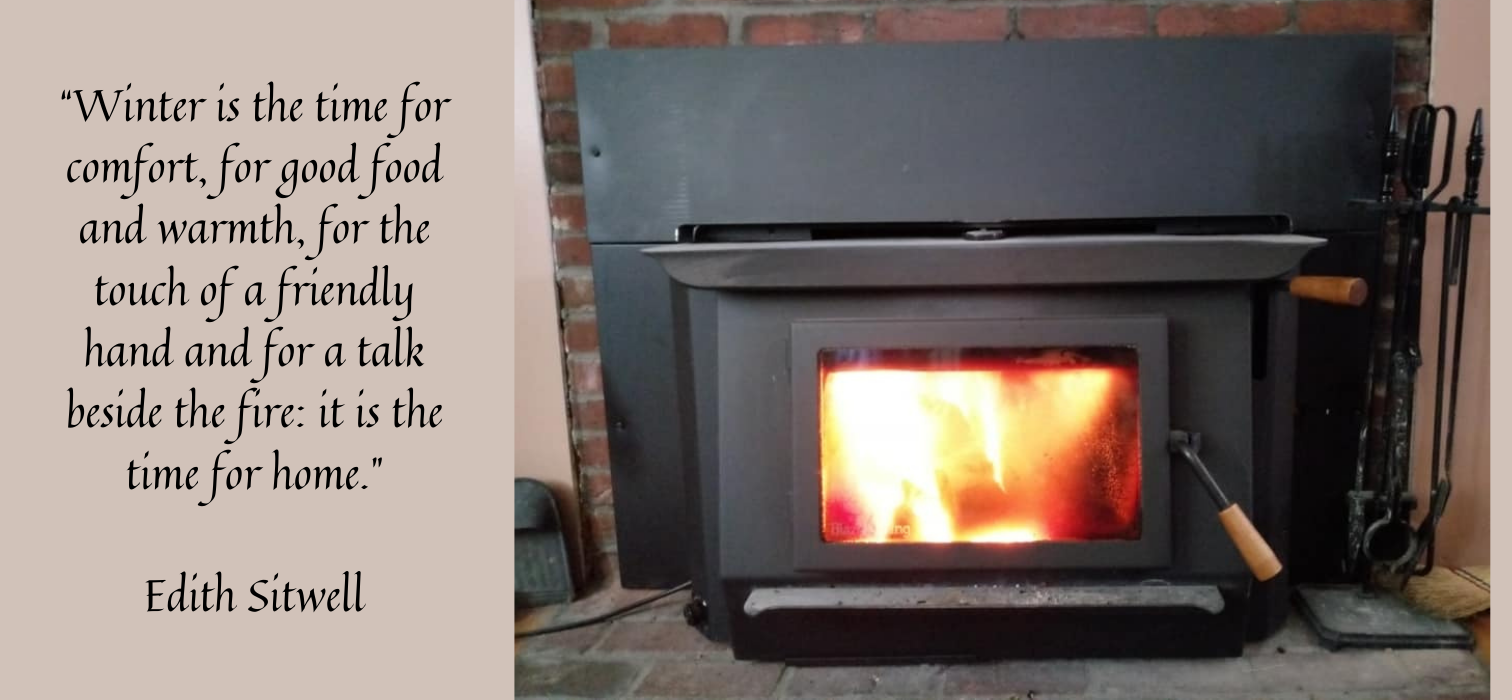1 Thess 5:11
“Wherefore comfort yourselves together, and edify one another, even as also ye do.”
It’s hard to know how to help people who are grieving. For some of us it might even seem impossible, or a bad idea to even try. Others of us, full of good intent, charge right in- and end up hurting more than helping. So, as it is now my turn to be the one grieving as I mourn my husband’s passing, it seems like a good time to talk about this. Because over a month ago I had absolutely no idea how to help others through this. This post will be long – but I have to make up for being away for a month, right?
There are a few factors we must consider (which is what makes this such a difficult subject to navigate!) before I share a LIST of what has helped me so much.
First, everyone grieves differently. And by this I do not mean that person A might cry constantly while person B holds everything in and shuts everyone out. Though that may be true. What I mean is that individuals can actually end up grieving differently, themselves, over time. And as each different part of their grief comes, they will need tailored help. So how can you tell where their grief is taking them right then? By asking good questions! I will address the importance of this more later. You must not assume anything, especially about how they are handling their grief at any moment. It comes in waves and the waves come in different sizes.
Second, everyone is gifted differently. I like learning about the different “love languages” (like words of affirmation, service, gifts, etc.), because not only does it help me see what I value most (I’m a quality time person), but also how I show love. Some folks are great speakers, some are great listeners, and some know how to give really thoughtful gifts even if they have no idea what to say! That includes huggers! So know your strengths. So many folks have reached out to me and God has used each of their personalities and abilities and experiences to encourage me. So even if you feel like you always say the wrong thing, don’t think there aren’t ways you can help.
Third, there are a few no-no’s to be aware of. Most folks know to not say “I know how you feel,” but sometimes this phrase is very tempting if you have been through a similar experience. Avoid it completely in a general sense, but use it with caution if you are able to use it in a specific way. For example, “Although there is no way I can understand what you are going through, I do know the pain of [insert something specific like ‘feeling alone’ or ‘wanting to talk to someone who has passed away’].” There is no way for me to understand what my mother-in-law is going through, for instance, because I have never lost a child (or even been a mother), even though we are missing the same person in our life.
Also, understand that as much as you want to help, sometimes no one can help at a certain point. There have been times where everyone who reached out to me just blessed my heart and made me feel so loved, and then there have been other times where I put my phone down and cried and sobbed and told God that the only thing that could possibly do me any good would be to have my husband back. Those moments are allowed by God to remind us that we need Him more than any human (who could comfort us one day, but then pass away and be gone the next). God has to have those moments with His children to help them be stronger. So don’t be offended if your help just isn’t doing anything for the person – and also, don’t feel helpless. I know that so many family members felt especially helpless at first when they saw me grieving. But you aren’t helpless if you’re praying for that person. Just the opposite, in fact. And now, as I’m growing and moving and living again, they can see it. Trust your dear grieving one with God when nothing you do seems to be helping.
One more note before our list – grief affects the body, not just emotions. Your friend may forget to tell you that they received whatever you sent them. They may not be able to speak when you visit them. They will probably forget a lot of things. They ache all over. They might be completely nauseous and not want you to visit. They might have a panic attack while you’re there and be embarrassed. They might suddenly snap and become very angry as another wave of surprising pain burns its way through their body. Be very accepting, be very loving, and try not to take what happens personally. I believe that humans were created to live on a perfect earth where nothing bad was to happen – that’s how God created the world. The brokenness we know now is not something we were meant for. It can have shocking tolls on us. So simply give grace and realize that there is a lot of physical pain happening.
Now, let me tell you about the many ways I have been comforted and encouraged by. I hope it will give you ideas. Many of these are things I would not have previously thought of!
- Cards
These let the person know that they are seen and valued. But know your strengths. Some folks only sent a verse, that was okay. Some folks only signed their name and said they were so sorry. Also fine. However, it took about 2 weeks before I could get myself to sit down and open the cards. - Letters
One of my friends figured that reading and thinking about something other than the loss and new reality I was facing might be helpful and wrote me some letters about what she was up to to let me feel some kind of normalcy. I really appreciated that. I The only letter I couldn’t handle was from a family member who had received some incorrect information about what happened and wrote an entire letter on their experiences that they felt were similar. The rest of my family appreciated it, but it made me extremely upset and I had to put it down halfway through. - Journal and pen
This was a great gift. What a good idea! I had been journaling in my phone since day one of the tragedy, but to think to send me something really tangible and practical and personal was so sweet. - Meals
Neighbors, church family, and biological family started bringing meals – it was so helpful. It’s hard to get yourself to do anything when you’re in the midst of despair. Getting up in the morning is hard. Brushing your teeth is hard. The hobbies you’ve always loved are hard. This was so helpful. Friends from far away sent us tons of cans of soup and crackers too! And other friends sent me cookies and snacks with protein. - A listening ear
I needed this so, so badly. I used to message and talk to my husband constantly all through the day, so the enormous emptiness and loneliness and thoughts piling up in my mind would have broken me if folks weren’t checking in or even just letting me know they were praying and loved me so much. Especially when folks simply said that they loved me and I didn’t need to get back to them, but I could always reach out 24/7. That was so helpful. It didn’t put pressure on me to respond to tons of people, and it let me know that my existence here meant something to another person. It let me know that when I felt like I couldn’t go on, there were multiple phone numbers I could call (and yes, many folks shared suicide hotlines with me too) and be able to pour my heart out or ask someone to talk to me.
I really needed to talk a lot when this first happened, too. I was so scared about what would happen to me if I bottled up the horror. If your grieving friend is an open person like me, you might hear some really horrible and scary thoughts come out of their mouth. But know that it is a good thing that they are getting it out and you are allowing them to start hearing themselves. And don’t be afraid to tell them what is true, but give them truth as an answer. Let them talk first, so you know exactly what they need to hear. This is so important. Unfortunately, a lot of Christians like to preach and slap verses down instead of listening first. For instance, Job’s friends weren’t very helpful. They assumed and then gave the wrong advice, even though a lot of what they said was true. Listen first, then address. When you check-in, don’t come in with advice, instead, ask a question (as I mentioned earlier). The most helpful questions I’m often asked are, “How are you doing right now?” or “How are you doing today?” because my answer has changed so much! - Financial help
No one wants to ask for money. It’s not acceptable in our culture. So if you think of this one and decide that this is something you can do, good on you. When tragedy strikes, costs are the last thing we are probably thinking of – but they are often a huge issue. I had no idea that funeral arrangements cost so much, or that I would need money for a new home, or that I would need to pay a lawyer to work out issues my young husband and I weren’t prepared for when he left (and I will be speaking about these things soon). I was blessed by family members who thought to pitch in here. Not everyone accepts money; some folks don’t like to admit that they could really use that help, but it won’t hurt them for you to offer. This is something we just won’t ask for. - Flowers and decorations
Flowers and other beautiful things like tapestries or posters can help (depending on the person). I used the flowers that were sent to me to set out at the funeral, and then to brighten up my new home. The notes on them were so nice – some were from friends, some were from prayer groups, some were from family. - Empathy
Romans 12:15
“Rejoice with them that do rejoice, and weep with them that weep.”
It helped so much for people to ask if they could come over (or even just show up, I actually really appreciated that too) to just hug me and cry. I felt like I couldn’t cry for the first two weeks until someone would hold me. Then I was able to let go and just shake and cry. It is weird that crying seems so horrible, but is really the best thing a person can do. It’s a way to let go of tension, which is a big part of the aching a grieving person feels. - Encouragement
After the initial need for people to pour truth into me (helping me to stop all the “what ifs,” reminding me constantly that what happened was not my fault because it was not my choice, and giving me Scripture to battle lies I was telling myself), what I needed most was encouragement. No more teaching for a bit, just time to practice what I was learning and the support and encouragement to help me know I was on track. This is why I said earlier that an individual needs different things at different stages of their grief. - Practical help
I had many people help me move after I lost him. And I do not want to be graphic, but most everything in the cabin was ruined and needed to be cleaned. The average person could not help me with this. So a friend of mine who had been in the navy offered to go in and clean and retrieve what I needed. Afterwards a number of neighbors spent the day getting everything from my home and taking it to a storage unit. My dad had the idea of sending everything to a storage unit where it would be safe and could sit without me worrying about it until I was ready. This took such a gigantic burden off my shoulders.
Next, I needed a place to live, and those same neighbors helped us turn a building on the side of my parents’ home into a studio apartment for me. I had an honorary uncle drive 16 hours to come head up the project because he had that capability. - Help with responsibilities
My family really had a hard time doing anything at first. I couldn’t eat, I couldn’t get myself to shower, I could hardly move. But there were things that needed to be done. I had to take care of me, my dog, the funeral preparations. God sent people to help with those things. My siblings needed rides to things, our family needed to make and eat food, and folks stepped in to help with those things too! What responsibilities does/do your grieving friend(s) have? Could you take some of their shifts at work? Could you walk their dog? Could you lead a Sunday school class for them? Could you have their kids stay with you for a little while?
Responsibilities can help a person keep moving, but sometimes folks need a little bit of space and down time to catch their breath again and heal. Even the tiniest tasks can seem like way too much during grief. Just drinking water can become too overwhelming. - Care packages
When it happened, I had none of my belongings. I wore the same outfit from the night it happened for an entire week. One of my neighbors put together a huge bag of clothes for me to go through and keep what I wanted. This act of kindness helped give me some dignity again. The first thing I stressed over after the incident happened was over not having clean clothes to wear. Something insignificant in the grand scheme of things became the straw that broke my back.
Another neighbor put together a giant basket full of self-care treats, like a soft pillow and blanket (which I slept in a chair with for a week because I didn’t have my own bed until my new home was done being put together), colored pencils and an adult coloring book of verses, Welches sparkling juice, water bottles (which really helped me start drinking water again, it was just that much more accessible), packets of tissues, lotions, lip balms, and other sweet gifts. That came on a very hard day and made my night.
Another friend sent decorations and cards of Scripture. Another sent me snacks, treats for my dog, perfume (I told her that I was having an issue with a certain scent that kept coming around during this), decorations, and more. - New Memories
One of the most helpful things for me to realize that there was life after my grief was to meet new people and visit towns I wasn’t super familiar with. I needed to see that there was more to life than what I had known, so even though I had lost so much, there was still more to discover. Making new memories helps the process. It helps the person to have memories that are part of a new chapter and don’t keep leading them back to their point of grief. I have many wonderful memories of my late husband, but right now they are leading me to my grief more than to comfort. - Being there
Every Facebook reaction and comment and message, every neighbor at the door, every phone call or text, and every person who reached out and helped made a difference in my life. Hearing that there were multiple people and groups of people praying for me was amazing. Folks may not remember what you say, but they will remember that you were there when they needed you.
Thank you for caring about others enough to read this. I hope this was informative for you. Everyone grieves differently. We all have different needs. This is just from my experience. But I hope it can help you help someone you care about.




